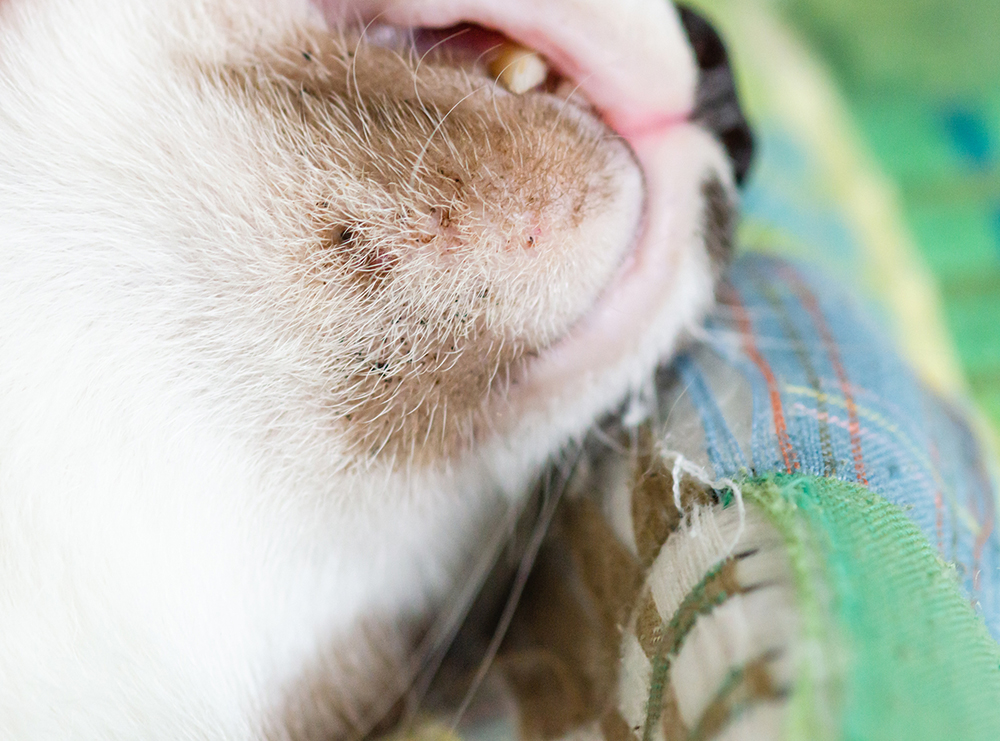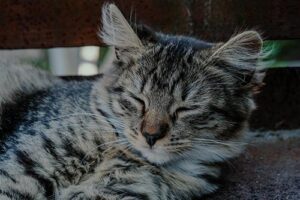Welcome to Boulder Veterinary Hospital’s blog! Today, we’re delving into a lesser-known but surprisingly common feline health issue: cat acne. Yes, much like humans, our furry companions can also suffer from this skin condition. Here, we’ll explore the causes of cat acne, how to prevent it, and the treatment options available at our clinic. Should your cat need professional attention, don’t hesitate to call us at 303-442-6262 or book an appointment online.
What is Cat Acne?
Often unobserved by pet owners, cat acne is a skin condition that generally affects the chin and lower lip of cats, causing blackheads, redness, and swelling. While it can occur at any age and in any breed, it’s more common in older, long-haired cats.
Identifying the Signs of Cat Acne
Recognizing cat acne can be a challenge, as the signs often mimic other skin conditions. The first sign is usually the appearance of black specks on your cat’s chin, resembling dirt. Over time, these may turn into red bumps or swellings. Persistent scratching or discomfort when touching the chin might also be noticeable.
What Causes Cat Acne?
Cat acne can be attributed to a multitude of causes, from external triggers to internal health issues.
External Factors
Environmental factors and poor grooming habits can contribute to the development of cat acne. Using plastic food and water dishes, which can harbor bacteria, is one such factor. Similarly, a lack of proper chin grooming can result in oil build-up, leading to blackheads. Cat acne can also be due to a hypersensitivity to the food they are being fed.
Internal Factors
Underlying health issues can also lead to cat acne. Hormonal imbalances, stress, and certain medications can trigger this skin condition.
Healthy Hygiene Habits for Cats
Switch to stainless steel, ceramic, or glass dishes for food and water, and clean them regularly. Ensure your cat’s chin is cleaned daily, especially after meals. Regular grooming and veterinary check-ups are also essential.
Proper Diet to Prevent Cat Acne
A balanced and hypoallergenic diet can help maintain your cat’s overall health, including skin health. High-quality cat food, supplemented with Omega-3 fatty acids, can boost your pet’s skin health and help prevent acne.
Treatment Options for Cat Acne at Boulder Veterinary Hospital
Treatment options depend on the severity of the condition.
- For mild cases, a topical ointment or medicated wipe may be sufficient. In severe instances, antibiotics or steroids may be necessary.
- Holistic remedies can also play a role. These may include dietary changes, supplements, or topical applications of natural ingredients like aloe vera or tea tree oil. However, any treatment should be undertaken under veterinary guidance to avoid potential harm.
Why Choose Boulder Veterinary Hospital for Your Cat’s Skin Health
At Boulder Veterinary Hospital, we are committed to ensuring your pet’s optimal health. Our expert team is equipped to accurately diagnose and effectively treat cat acne, giving your feline friend the relief they need.
Remember, early detection and treatment of cat acne can prevent further complications. If you suspect your pet has cat acne, reach out to us at 303-442-6262 or schedule an appointment online.
Stay tuned for more helpful pet health information from Boulder Veterinary Hospital – your trusted local resource for comprehensive pet care!





